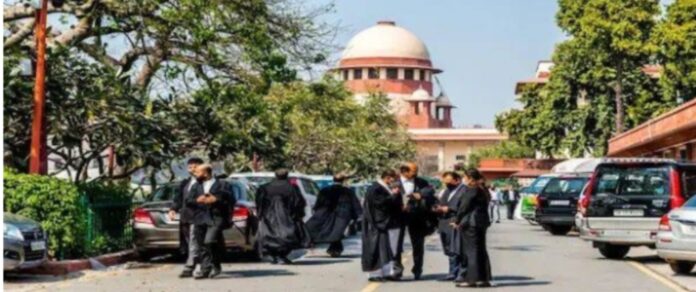The Supreme Court of India
Report from New Delhi, India says, the country’s top court has declined to legally recognize same-sex unions in a landmark ruling, but emphasized the rights of the LGBTQ community to be free of prejudice and discrimination.
Campaigners had sought to obtain the right to marry under Indian law, giving them access to the same privileges extended to heterosexual couples.
A five-judge constitution bench, led by India’s chief justice, delivered the much-anticipated verdict on Tuesday, streamed live across the nation and to crowds outside the court who gathered to watch on their cellphones.
During the two-hour ruling, Chief Justice D. Y. Chandrachud said queerness is a “natural phenomenon,” and told the government to ensure the “queer community is not discriminated against because of their gender identity or sexual orientation.”
Justice S. Ravindra Bhat said the right of LGBTQ couples to choose their partners was not contested, but “this does not extend the right to claim any legal entitlement to any legal status for the same union or relationship.”
Bhat called for a “high-powered committee” to be formed to evaluate laws that indirectly discriminate against LGBTQ couples by denying them “compensatory benefits or social welfare entitlements” that usually come with being legally married.
“This court cannot within the judicial framework engage in this complex task, the state has to study the impact of these policies and entitlements,” he said.
India’s marriage laws bar millions of LGBTQ couples from accessing legal benefits attached to matrimony in relation to matters including adoption, insurance and inheritance.
More than a dozen petitioners had challenged the law, taking their case to the Supreme Court, which heard their arguments during hearings in April and May.
Susan Dias, one of the petitioners in the case, said she, along with her partner were “disappointed” with the verdict.
The ruling government of the Bharatiya Janata Party (BJP) had opposed calls to legalize the unions.
In a submission to the court earlier this year, lawyer for the government, Solicitor Tushar Mehta, called same-sex marriage an “urban” and “elitist” concept – one that is “far removed from the social ethos of the country.”
Hindu mythology dating back centuries features men transforming into women and holy texts include third gender characters. But same-sex intercourse was criminalized and marriage rights limited to heterosexual couples under a penal code introduced by India’s British former colonial rulers in 1860.
During nearly a decade in power, Indian leader Narendra Modi and his ruling BJP party have been keen to shake off India’s colonial baggage, renaming streets and cities and championing an India in charge of its own destiny. But Victorian laws governing same-sex marriage are one throwback to the colonial past his party has fought to retain.
After a decade-long battle in 2018, the Supreme Court struck down the colonial-era law that criminalized same-sex intercourse – though it left intact the legislation limiting marriage to heterosexual couples.
Top leaders from the country’s various religious organizations came together earlier this year to say marriage “is for procreation, not recreation.” — CNN
Source: CNN/SG.
For more stories, follow us on Facebook @Nigerian Kicker.





